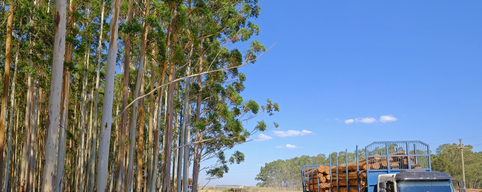

Researchers have found that a significant proportion of timber supplied to the UK under the guise of other countries' products is actually of Belarusian and Russian origin. This discovery was made based on an analysis of data provided by the British publication The Guardian and conducted by the international non-profit organisation World Forest ID. This data raises serious questions about the authenticity of supply chains in the forestry industry and raises concerns about compliance with sanctions imposed on Belarus and Russia.
World Forest ID, an organization founded in 2017, works to ensure transparency in global forest product supply chains. Its research shows that around 46% of birch products entering the UK under the guise of goods from Ukraine, Poland, Estonia, and Latvia actually originate from Belarus and Russia.
World Forest ID's research raises serious questions about the reliability of labeling and tracking systems for forest products. Falsifying the origin of timber opens the door to circumventing international sanctions and sustainable development standards. It also undermines trust in international supply chains and causes concern among consumers who want to buy products that have been produced without harming the environment and in accordance with ethical standards.
Research also shows that unscrupulous sellers can use “camouflage” to export timber from sanctioned areas. This not only harms companies that operate honestly under sanctions, but also creates an uneven playing field in markets where transparency and compliance with international standards should be a priority.
Verification of supply chains at all levels remains an important aspect. This requires stricter controls by both the state and independent organizations. Efforts should be focused on identifying and stopping such schemes, as well as introducing stricter standards and technologies for tracking products throughout the supply chain.
The smuggling of timber and its disguise as products from other countries undermines the international community's efforts to control illegal logging and timber trade. This highlights the need for enhanced international cooperation and information sharing among countries to address such violations.
The World Forest ID study sheds light on the importance of transparency and accountability in supply chains. It highlights the need to use advanced technologies such as blockchain or molecular tagging tools to prevent fraud regarding the origin of goods. Only through the rigorous implementation of modern technologies can violations be effectively combated and the sustainability of the industry be maintained.



